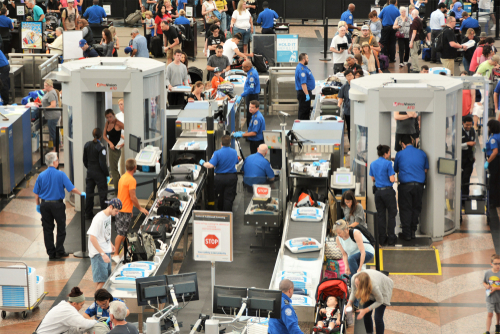
In a letter to Transportation Security Administration (TSA) Administrator David Pekoske, U.S. Sen. Steve Daines and U.S. Rep. Ryan Zinke, both Montana Republicans, called for the administration to undo a new employee screening policy they said would overly burden Montana airports.
Under scrutiny was the National Amendment on Aviation Worker Screening, which requires airports with at least 250,000 enplanements to begin random screenings of aviation workers entering secure areas by Sept. 25. It also included demands to develop and implement plans for explosive screening among those workers by April 2026.
However, Daines and Zinke alleged the demands to be vague, exceedingly high cost and overly demanding, particularly in terms of staffing, with the claim that new screening positions could consume as much as 20 percent of the total workforce at some smaller airports. At the least, they declared the five-month timeframe for implementation to be inadequate.
“Ultimately, if implemented, the National Amendment would represent a fundamental shift in TSA’s screening responsibilities and undermine the role in which they were specifically tasked to perform post-9/11,” the lawmakers wrote. “Airport staff would essentially be required to duplicate the individual screening process that TSA screening officers are trained for, have equipment for, expertise in, and are already performing at airports. With these factors in mind, we request that the amendment be rescinded immediately and that aviation security screening remain the sole responsibility of the TSA, even for aviation workers at airports.”
They even added constitutional questions to the mix, noting that Montana’s state constitution contains strict search and seizure protections that could render the mandate legally dubious.
As a compromise, if the TSA insists on the amendment, the lawmakers asked that implementation be delayed for at least a year. Additionally, they asked for a briefing to be held by Aug. 31 on how the agency plans to address the concerns from Montana.




